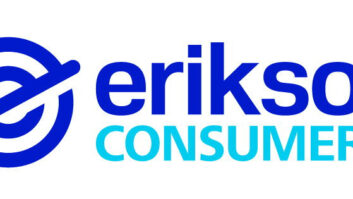
T-Mobile subscribers are more satisfied with their wireless service than subscribers of the three other national carriers, and Consumer Cellular is tops among non-contract service brands, whether the brands are available from MVNOs or from the subsidiaries of the major carriers, a consumer survey by Market Force Information found. Most of those services are prepaid services.
Overall, consumers are more delighted with non-contract wireless providers than with traditional, full-service carriers, Market Force noted.
The survey also found that, among the national carriers, T-Mobile dominates in subscribers’ satisfaction with value, and Verizon leads in customer satisfaction with network coverage, call strength, data speeds and new-device technology.
Market Force based its conclusions on a May 2016 online survey of 8,675 U.S. respondents said to reflect a broad range of income levels. Market Force provides companies with customer-satisfaction analysis based on surveys, mystery shopping and contact center data.
For the rankings, Market Force asked participants to rate their satisfaction with their primary wireless carrier and its services along with the likelihood that they would refer that brand to others. The results yielded a score on a composite loyalty index.
Among full-service wireless carriers, T-Mobile ranked first with a loyalty index of 38.4 percent out of 100 percent, nosing out second-place Verizon Wireless at 38 percent, followed by AT&T in third place and Sprint fourth. (See table below).
National Carriers

Consumer Cellular led among non-contract providers with a 70 percent score, followed by Cricket Wireless at 60 percent, TracFone’s StraightTalk brand (available only through Walmart) at 56 percent, Metro PCS, Boost Mobile, TracFone, Virgin Mobile and U.S. Cellular. (See table below.)
No-Conract Service Providers

“Overall, customers of the non-contract providers studied showed higher satisfaction levels than those with subscriptions to one of the national carrier’s services. This could be attributed to the fact that wireless users believe non-contract carriers provide a better perceived value to their customers based on factors like price, coverage, and flexibility to change plans,” said Cheryl Flink, Market Force’s chief strategy officer.
In assessing what distinguishes one national carrier from another, Market Force found that T-Mobile customers ranked highest in satisfaction in the categories of value, ease of changing plans and access to new cellular-network technologies. The carrier, however, ranked last in satisfaction with the frequency of dropped calls.
Verizon was the leader in network-coverage satisfaction with a satisfaction index of 65 percent, followed by AT&T at 45 percent and T-Mobile third at 30 percent. Verizon also ranked highest for call strength, data speeds and new-device technology. Sprint landed at the bottom for most of the categories studied. (See table below.)
National Carriers Satisfaction By Attribute

Among non-contract service providers, Consumer Cellular was tops in 10 of the 12 attributes measured. The top brand with the best value was Consumer Cellular, followed by Cricket and TracFone in a second-place tie. Sprint’s Virgin Mobile brand followed.
In terms of network coverage, the leaders were Consumer Cellular, TracFone and StraightTalk, in that order. (See table below.)
Non-Conract Providers Satisfaction By Attribute

In other findings, Market Force found that almost three-quarters of consumers have been with their carrier for at least two years and that only 12 percent indicated they want to switch providers in the next 12 months. The most frequently mentioned reason for switching was price. (See table below.)
Why Subscribers Plan To Switch

Sixty-five percent of those planning to switch cited a desire to get a better value, while 35 percent said they wanted to get better network coverage. Thirty-three percent said they wanted a more flexible plan. The carriers that most said they would drop are Boost Mobile or Sprint, and the ones they would most likely switch to are AT&T and Verizon.
The survey also found Android users outnumbering iOS users, with 47 percent saying they currently use Android on their primary wireless phone. Forty-two percent use iOS.













